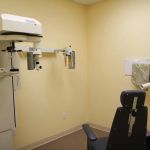Understanding the Connection Between Oral Hygiene and Bacterial Vaginosis
The question of whether bad oral hygiene can cause bacterial vaginosis (BV) might seem unusual at first. After all, how could something happening in the mouth affect what’s happening in the vaginal microbiome? But growing scientific evidence and real-world observations suggest that there may be more of a link between the two than once believed. This connection isn’t about direct causation but rather systemic health patterns, shared microbial imbalances, and behavioral correlations that deserve closer attention.
Bacterial vaginosis affects nearly 21 million women in the U.S. annually, making it one of the most common vaginal conditions. At the same time, over 47% of adults in the U.S. suffer from some form of periodontal disease. With both conditions tied to microbial imbalances and inflammatory responses, it’s no surprise that researchers are exploring how one might influence the other.
1. Oral Bacteria and the Microbiome Connection
One of the most compelling reasons to explore this topic is the way oral bacteria can impact the body systemically. When oral hygiene is poor, harmful bacteria such as Porphyromonas gingivalis and Fusobacterium nucleatum proliferate in the mouth. These bacteria don’t just stay put—they can enter the bloodstream through inflamed gums, travel throughout the body, and influence immune response in distant parts of the body.
Some studies suggest that women with periodontal disease have higher rates of BV. While this doesn’t mean poor oral hygiene directly causes BV, it does show that inflammatory and microbial stress from oral disease may contribute to disruptions in other microbiomes—particularly the vaginal flora.
A 2020 study published in the journal *Microbiome* found that women with high oral pathogen loads had an increased risk of vaginal dysbiosis, including conditions like BV. This supports the growing view that different parts of the body are interconnected in more complex ways than once thought.
2. Real-Life Stories Highlighting the Pattern
Consider the story of Angela, a 29-year-old dental assistant from Chicago. Despite being diligent about vaginal hygiene and diet, she experienced recurring BV episodes every few months. After working in a dental clinic and learning more about oral microbiota, she made drastic changes to her oral care—flossing daily, switching to an antibacterial mouthwash, and getting a professional cleaning every four months. The result? Her BV symptoms significantly reduced, and for the first time in two years, she went a full year without a recurrence.
Angela’s case isn't unique. Online communities like Reddit and health-focused Facebook groups often feature anecdotal accounts of women who noticed BV flare-ups decreasing after improving dental health. While these stories aren't scientific proof, they reflect lived experiences that are worth investigating further.
3. Shared Risk Factors Between Poor Oral Health and BV
Several behavioral and lifestyle factors increase the risk of both periodontal disease and BV. These include:
- Smoking – which disrupts oral and vaginal microbiota
- Poor diet – particularly high sugar intake, which feeds harmful bacteria
- Hormonal imbalances – affecting immune regulation across microbiomes
- Stress – which can impact immunity and bacterial balance
Understanding these overlapping factors reveals that bad oral hygiene may be part of a larger pattern of systemic neglect or imbalance. Addressing one component—like brushing and flossing more effectively—could have a ripple effect in improving other areas, including vaginal health.
Furthermore, systemic inflammation from periodontal disease may alter cytokine levels and hormone pathways that influence vaginal immune response. This is particularly relevant for women dealing with chronic or recurrent BV.
4. Scientific Research Exploring the Oral-Vaginal Axis
In recent years, scientists have begun to explore what some call the "oral-vaginal axis." While this term is not yet widely recognized in clinical practice, the idea is gaining traction in academic circles. A 2022 report from the American Journal of Obstetrics and Gynecology emphasized the need to consider whole-body microbiome interactions in treating chronic gynecological conditions.
Some hypotheses suggest that oral sex may also serve as a transmission route for oral bacteria to enter the vaginal environment. Though this doesn’t mean that bad oral hygiene will always lead to BV through this pathway, the risk may be heightened when oral health is poor. As such, better oral care could serve as an added preventive measure.
More longitudinal research is needed to establish firm conclusions, but the evidence already available is enough to encourage patients and healthcare providers to look beyond isolated symptoms and consider systemic contributors.
5. Tips for Maintaining Oral and Vaginal Health Simultaneously
If you’re concerned about how your oral health may be impacting other aspects of your body, especially your vaginal health, here are practical steps you can take:
- Brush and floss daily, ideally twice a day
- Use an antimicrobial mouthwash recommended by a dentist
- Schedule dental cleanings at least twice a year
- Limit processed sugars and acidic foods that feed harmful bacteria
- Drink water frequently to support saliva production and bacterial balance
- Maintain a diet rich in probiotics and prebiotics to support microbiomes
- Avoid douching and unnecessary feminine hygiene products
Incorporating dental health into your overall wellness routine doesn’t just protect your teeth—it may also protect your reproductive health. For women experiencing frequent BV, dental evaluation could be a surprising but valuable step in finding long-term relief.
6. When to Speak to a Healthcare Professional
While improving oral hygiene is a good preventive strategy, it’s not a substitute for professional care when dealing with persistent or recurrent BV. If symptoms like unusual discharge, odor, or irritation continue, speak with a gynecologist. Similarly, if you experience bleeding gums, chronic bad breath, or loose teeth, consult a dentist.
Coordinated care between dental and medical professionals can uncover patterns and provide more effective, personalized treatment. In some cases, dual intervention—like treating gum disease while managing BV—leads to faster and longer-lasting results.
Women deserve full-spectrum care that considers how one part of the body can affect another. Oral health isn’t just about smiles—it’s about the whole body, including vaginal health.
Enhancing Health Holistically with Trusted Support
So, can bad oral hygiene cause BV? While it may not be the sole cause, evidence increasingly shows that poor dental health can be a contributing factor in the larger picture of vaginal health. Understanding this link offers women a new path toward prevention and management—one that includes the toothbrush as much as the probiotic.
If you’re ready to take charge of your full-body health, visit Dentistry Toothtruth for trusted dental care resources, wellness recommendations, and personalized guidance. A healthier mouth might just lead to more than a brighter smile—it could also mean a better balance below the belt.







 Western Dental & Orthodontics4.0 (910 review)
Western Dental & Orthodontics4.0 (910 review) Herrera Family Dental4.0 (97 review)
Herrera Family Dental4.0 (97 review) Promenade Family Dentistry4.0 (12 review)
Promenade Family Dentistry4.0 (12 review) Affordable Dentures & Implants4.0 (757 review)
Affordable Dentures & Implants4.0 (757 review) Foreside Dental Health Care4.0 (245 review)
Foreside Dental Health Care4.0 (245 review) Maine Prosthodontics5.0 (168 review)
Maine Prosthodontics5.0 (168 review) The Importance of Oral Health Education During Pregnancy for a Healthy Pregnancy
The Importance of Oral Health Education During Pregnancy for a Healthy Pregnancy Best Tips for Brushing Your Teeth Properly for Healthy Gums: Essential Techniques for Oral Health
Best Tips for Brushing Your Teeth Properly for Healthy Gums: Essential Techniques for Oral Health Why Skipping Dental Checkups Can Lead to Bigger Oral Health Problems
Why Skipping Dental Checkups Can Lead to Bigger Oral Health Problems Advantages of Porcelain Dental Restorations
Advantages of Porcelain Dental Restorations How Can Diabetes Cause Tooth and Gum Problems? Preventing and Managing Oral Health Issues
How Can Diabetes Cause Tooth and Gum Problems? Preventing and Managing Oral Health Issues Healthy Habits for Promoting Good Oral Health and Hygiene: Tips for a Healthy Smile
Healthy Habits for Promoting Good Oral Health and Hygiene: Tips for a Healthy Smile